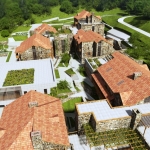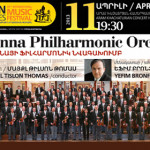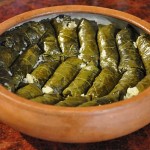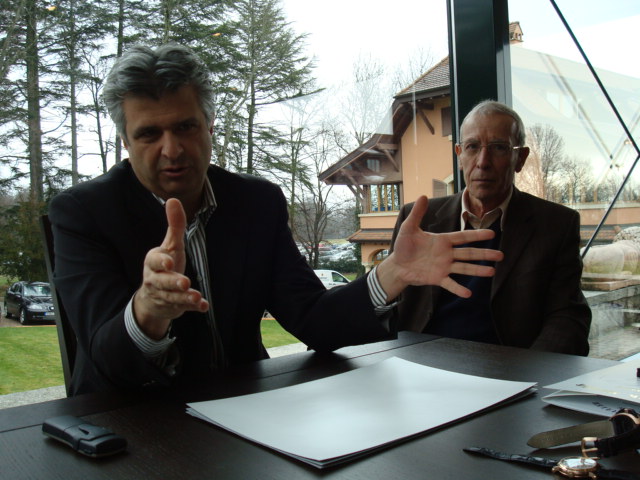Franck Muller is one of the best known and most popular high-end watchmakers today. The man behind the Franck Muller Group, Armenian-born Vartan Sirmakes, has created a unique formula for building a multi-brand house. The operation now has 14 sites of production throughout Switzerland for its seven brands. The majority are in Geneva and employ more than 800 people. The Franck Muller brand alone has more than 50 patents registered.
Sirmakes, himself, is worthy of accolade. He was recently named the 2008 winner of the prestigious Prix de l’Industrie award, given by the Geneva Chamber of Commerce. Elite Traveler Editor-in-Chief Douglas Gollan recently sat down with Sirmakes at his Watchland Headquarters to talk about how he manages the creative talent, what the economic crisis has him thinking about and why Inter Milan is a favorite subject.
ET: Tell us how you came to be the owner of the Franck Muller Group, since you started off making cases and diamond settings.
Vartan Sirmakes: I started making cases and diamond settings, cases for Cartier before Richemont and all the cases for Daniel Roth. I met Franck Muller, who was a watchmaker, and together we started the company and the brand, Franck Muller, in 1991.
ET: We’re sitting in Watchland, here in Geneva, and now there’s seven brands. How has the company grown since 1991?
Vartan Sirmakes: It is quite a story, from one to seven brands. The first brand after Franck Muller was Pierre Kunz, and he was a watchmaker here at Watchland. I thought I had to give the talented watchmakers a chance to make their own brands and to develop. If you look at the history of watchmaking that is really how brands start. A watchmaker is born, he learns his craft, and if he is really good, he goes from the house he started to putting his own name on his own watches. And that’s how we grew.
ET: This is a different approach than a lot of the companies—their master watchmaker leaves and starts his own brand. You’ve been successful by giving these master watchmakers an opportunity to succeed within the group?
Vartan Sirmakes: Yes. This is very important. It’s enriching for both sides.
ET: Are the brands positioned to be different? Are they competitive with each other? How do you look at your portfolio?
Vartan Sirmakes: Each brand has its own direction. For example, Pierre Kunz or Rudolf or Martin Braun will be free to follow their own creative direction. And this means that it’s a partnership that works for all sides.
ET: Seeing that you have this all-star lineup of watchmakers in Watchland, are there collaborative efforts between them?
Vartan Sirmakes: Relationships between watchmakers are as complicated as a football team. For the moment, they have managed to keep all the talents intact.
ET: So could we describe your role here as being the coach of the football team, one that keeps all the egos working collectively for the greater good?
Vartan Sirmakes: You’re right, you’re right! It’s a very mechanical profession, a very passionate obsession, and a friendship.
ET: Friendship. So you never have David Beckham and Cristiano Renaldo screaming at each other, both wanting more attention ever?
Vartan Sirmakes: Sometimes you have tension, of course, but I am here resolve all of it.
ET: Tell us about the structure of the group. What role you do play day to day? How you manage the global business?
Vartan Sirmakes: I am the CEO of the group, but maybe it’s better to say I am the father of a big family. My job is the people and the development of people. I have my association at Franck Muller, my group of importers touring the world, and many collaborators. It’s a lot of work, but the philosophy you need is to do the job one step at a time and focus on what you are doing. You can’t just rush things so you can say, ‘Today I did this and this and this.’ The point is to make sure it is done right.
ET: As you continue to grow, do you ever think that the Franck Muller Group will become part of a conglomerate?
Vartan Sirmakes: We are often solicited to become parts of the bigger groups, but for the moment, the decision is to stay independent. We have a lot more things we can do with the group, and we are working hard to develop it. Integrating with a group would put a hold on creativity, identity, and independence.
ET: Today the markets got off to another bad start, and the world finances are in turmoil. You have a very high-end business. How’s your business doing?
Vartan Sirmakes: I think it is a big opportunity for creators and the brands that have a true story, a strong base of business, and are strong financially. For creative people who make a good product and with a ratio of quality to price, they will be fine.
It’s not like 1929. Before 1929, we didn’t have the power of production that we do now. It was not a production society. There are things going on that don’t make sense. I’m not an economist, but I will give you one example. Today in Europe, you give money to the farmer to not produce. In 1929, you didn’t have enough butter, you didn’t have bread. Of course, somewhere today you still have this problem, but in the world generally, we are paying money to stop farmers from producing.
ET: Would you support government payments to stop your group from making watches?
Vartan Sirmakes: Why not? Now that makes sense. I will wait for some government money, and we will take a vacation from making watches.
ET: Speaking of vacation, are there things that you like to do when you aren’t working?
Vartan Sirmakes: I live in one of the most fantastic cities in the world, Geneva. It’s a busy city. Frankly, I don’t have much free time when I am in Geneva, even on Saturdays and sometimes Sundays, I work. But sometimes I go Milan to follow the football matches.
ET: Do you have a favorite club that you follow?
Vartan Sirmakes: Inter Milan.
ET: Aren’t you are a partner in a football club in Armenia?
Vartan Sirmakes: It’s a hobby. I’m helping my native country, because football is so difficult at a very high level. This is a small club.
ET: Do you have any have a dream that the small club goes international?
Vartan Sirmakes: No, no, no. It is just for fun.
ET: It’s always interesting to see the father-son tradition that follows generations. Your eldest son is involved in watchmaking. Did you encourage him to get into the business? How do you feel about having a son who’s launched a successful brand as well?
Vartan Sirmakes: I think it is excellent. Of course my son was born into watchmaking. He grew up inside watchmaking. And after he worked with me, he wanted to make his own way. He started making his own watches, Cvstos. It’s a better experience for him to produce and create, but also worry about the commercial aspect.
He also comes in to Watchland one day a week. The day I retire, my son will be much more prepared to take over the business when he’s done it on his own, but also comes to Watchland.
ET: Does he ask you for business advice for Cvstos?
Vartan Sirmakes: We don’t speak about Cvstos at Watchland. It is one of principles, one of the rules for the independence of Cvstos.
ET: Do you ever ask him for advice?
Vartan Sirmakes: I listen to every kind of person and sometimes he gives good advice.
ET: Any specific time that comes to mind when he gave good advice?
Vartan Sirmakes: It’s more a generational thing. For example, I don’t use a computer normally. I know how to go on the Internet, but just to look for sport news about Inter Milan. He can tell me about things I don’t really know since I don’t use them. The new technology.
ET: Do you have any other children? Are they involved also?
Vartan Sirmakes: I have an 18-year old girl and another boy, a 16-year old. My daughter’s very creative, so maybe one day I will start some diversification into leather boots and handbags. I think she has some touch for that. And my son, maybe a football player.
ET: Do you ever think about using Sirmakes, putting your name on a new brand?
Vartan Sirmakes: Sometimes I think about it, with one of the good watchmakers, but I won’t give you his name. Today, it’s not in the pipeline, but I think about it.
ET: The watch business is very interesting because highly-complicated watches take six months to a year to make. Yet you’re in a commercial business where you need to make a profit. How do you balance the need to be creative with the need to have efficient production to actually make money?
Vartan Sirmakes: When you go into complicated watches, it’s very, very difficult. It’s six months to one year to make the watch, but before that, you need maybe two or three years of research and development. This is patience of complication and don’t count the actual investment. The secret is to succeed in the complication.
ET: So you don’t look at each watch model for profit and loss?
Vartan Sirmakes: No, no. If you finish your research and development in three years, and you finalize the project, you’re okay. You don’t lose money, you break even. If you don’t finish, that’s the catastrophe.
ET: If you hadn’t gone into the watch world, what would your career be?
Vartan Sirmakes: My dream was to become a footballer of course. The dream and the reality would have been journalism. To be a journalist, you have a unique vision of the world, and you have to see the world at 360 degrees. I would have been a political journalist, not a football journalist.
ET: Not a watch journalist either?
Vartan Sirmakes: No. Right now, with the world changing so fast, it would be amazing to be a journalist covering it all. It’s a passionate career.
ET: Anything else that you’d like to tell our readers?
Vartan Sirmakes: I wish courage for everybody. I don’t worry about my business. In a few months, a few years, after everything will be good. Don’t forget that 300 years before the train, the plane, and electricity, watchmaking existing. Imagine 300 years before, you had this fantastic object, a pocket watch. It’s incredible.











